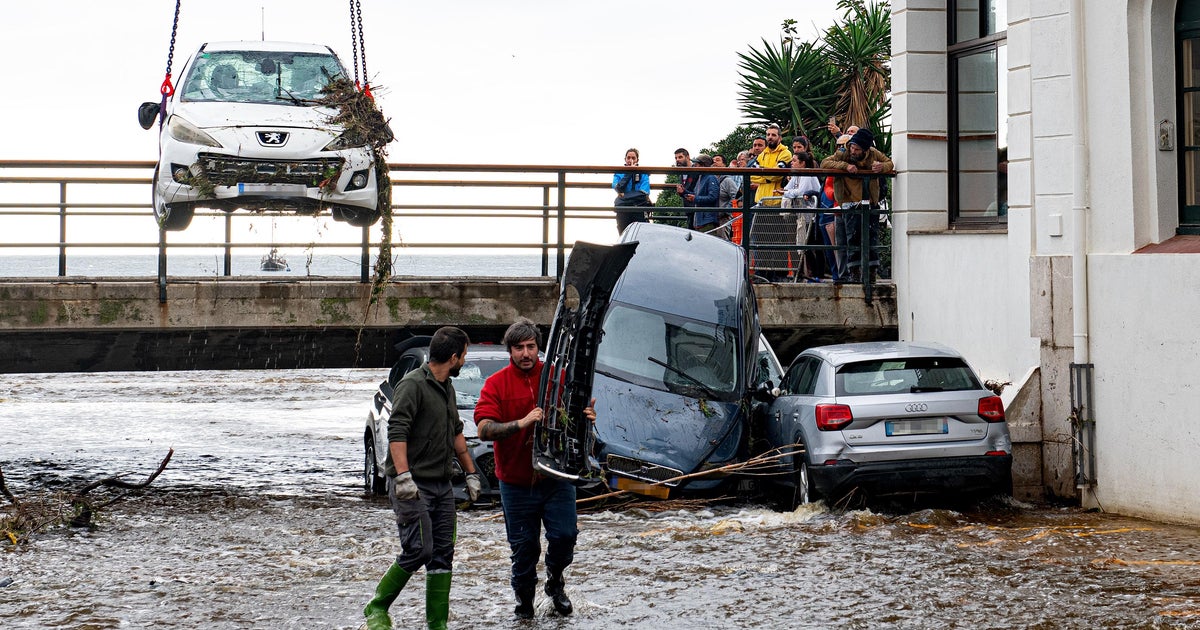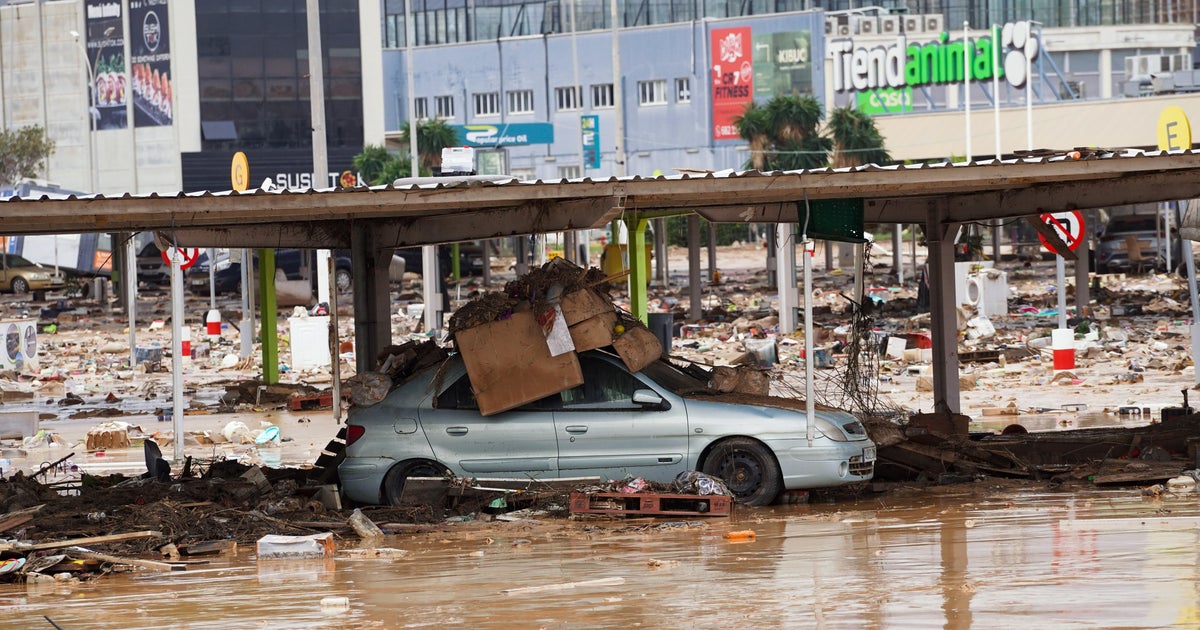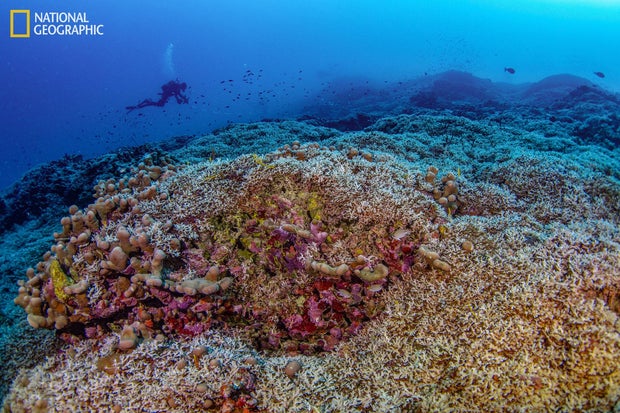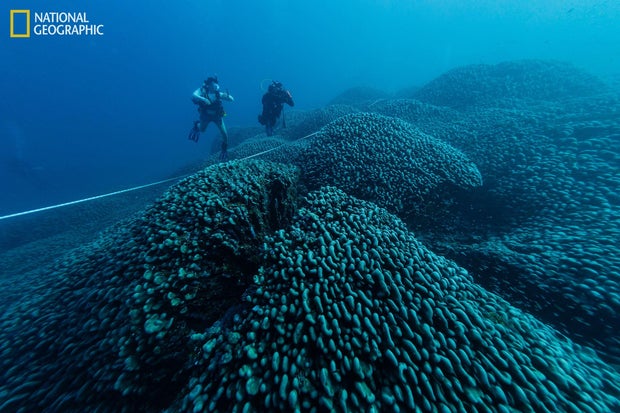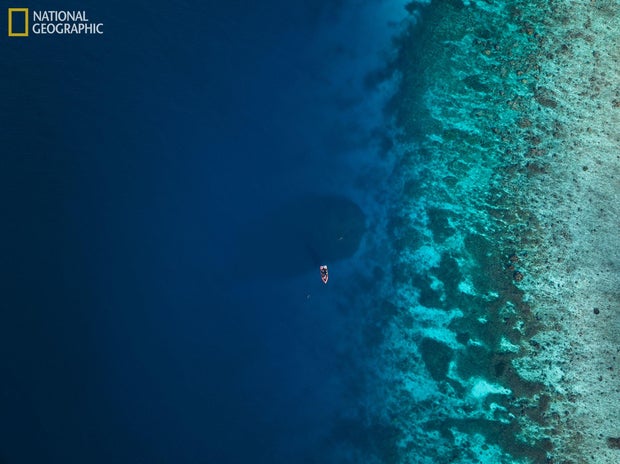CBS News
Spain arrests top police officer after over $21 million found at his home following record cocaine bust

Spain has arrested one of its top police officers after 20 million euros were found hidden in the walls of his house, as part of a probe into the country’s largest-ever cocaine bust.
Described as discreet and hard-working, Oscar Sanchez Gil was until recently the head of the fraud and anti-money laundering division of Spain’s National Police force in Madrid.
Officers arrested him last week along with 15 other people, including his romantic partner, a police source told AFP. The source did not name the romantic partner, who is also a police officer in the Madrid region.
During the raid, police found 20 million euros, or around $21.1 million, in cash hidden in the walls and ceilings of the couple’s home in Alcala de Henares, a town of around 195,000 inhabitants located some 18 miles east of the Spanish capital.
Officers also uncovered one million euros in his office, hidden in two locked cupboards, in bills of 50 to 500 euros, according to the police source.
The couple have been charged with drug trafficking, money laundering, corruption and membership in a criminal organization after last week appearing before a Madrid court, which remanded them in custody, a judicial source told AFP.
Spanish media said the arrests were linked to a cocaine seizure in Algeciras on October 14 from a container ship that had arrived from Ecuador’s largest city Guayaquil, a drug-trafficking hub. The cocaine was hidden in crates of bananas. Fruit screens had been placed to hide the cocaine, police said in a news statement.
Police said the drug bust is the largest-ever haul of cocaine in Spain and “one of the largest seizures in the world”.
The container was destined for a Spanish importer based in the southeastern coastal town of Alicante “who had been receiving large quantities of fruit imported from Ecuador for years”, the authorities said. Spanish police said they cooperated with the National Police of Ecuador to intercept the shipment.
Spain, a main gateway into Europe for Latin American cocaine, has cracked down on drug shipments arriving from Latin America. Cocaine seizures at European ports have reached record levels, the head of Europol’s narcotics unit Robert Fay told the AFP.
Spain worked with counterparts in June to arrest 40 people in a years-long operation to bust a major drug smuggling ring. In July Spain participated in a takedown of a major network transporting Latin American cocaine into Europe by boat, which involved 50 arrests across eight countries. Twenty-six of the detainees were arrested in Spain.
CBS News
What goes into the Senate confirmation process for Trump’s cabinet picks

Watch CBS News
Be the first to know
Get browser notifications for breaking news, live events, and exclusive reporting.
CBS News
Sneak peek: The Plot to Eliminate Alyssa Burkett

Watch CBS News
Be the first to know
Get browser notifications for breaking news, live events, and exclusive reporting.
CBS News
Scientists say they’ve discovered the world’s biggest coral, so huge it was mistaken for a shipwreck

Scientists say they have found the world’s largest coral near the Pacific’s Solomon Islands, announcing Thursday a major discovery “pulsing with life and color.” The coral is so immense that researchers sailing the crystal waters of the Solomon archipelago initially thought they’d stumbled across a hulking shipwreck.
“Just when we think there is nothing left to discover on planet Earth, we find a massive coral made of nearly one billion little polyps, pulsing with life and color,” marine ecologist Enric Sala said.
The standalone structure, formed from a “complex network” of tiny coral polyps, has likely been growing for 300 years or more, the researchers said.
Manu San Félix/National Geographic Pristine Seas
At about 111 feet wide and 104 feet long, the team said the “mega coral” was three times bigger than the previous record holder — a coral dubbed “Big Momma” in American Samoa. The massive coral is not a coral reef, structures that can be far larger but are comprised of many distinct coral colonies, they explained.
“While Big Momma looked like a huge scoop of ice cream plopped down on the reef, this newly discovered coral is as if the ice cream started to melt, spreading forever along the seafloor,” said lead scientist Molly Timmers.
It’s longer than a blue whale and thought to be “so colossal” that it could be seen from space.
ManuSan Félix/National Geographic Pristine Seas
The coral was discovered at the southeastern tip of the Solomon Islands, in an area known as the Three Sisters. It was spotted by a National Geographic team embarking on a scientific expedition in the region.
Hotter and more acidic oceans have drained the life from corals in many of the region’s tropical waters, a process called bleaching, including Australia’s famed Great Barrier Reef. But this latest discovery offered a small glimmer of hope, the research team said.
“While the nearby shallow reefs were degraded due to warmer seas, witnessing this large healthy coral oasis in slightly deeper waters is a beacon of hope,” said coral scientist Eric Brown.
The lush rainforests and pristine waters of the Solomon Islands have long been celebrated for their ecological diversity. Wildlife observations made in the area in the 1920s helped prove a key part of Charles Darwin’s theory of evolution.
“There is so much to learn about the richness of marine life and the ocean ecosystem, but this finding opens doors of knowledge,” said top Solomon Islands official Collin Beck. “More scientific research is needed to better understand our rich biodiversity and our planet.”
Steve Spence/National Geographic Pristine Seas
The discovery was announced as representatives from around the world meet in Baku, Azerbaijan for the COP29 United Nations summit on climate change.
The Solomon Islands national climate minister, Trevor Manemahaga, told CBS News’ partner network BBC News at the summit that his nation was proud to be the home of the massive, newly discovered coral.
“We want the world to know, that this is a special place, and it needs to be protected,” he told the BBC. “We rely mostly on marine resources for economic survival, so coral is very, very important.”
Small, low-lying island nations such as the Solomons are among the most vulnerable to the increasing effects of climate change and sea-level rise.



